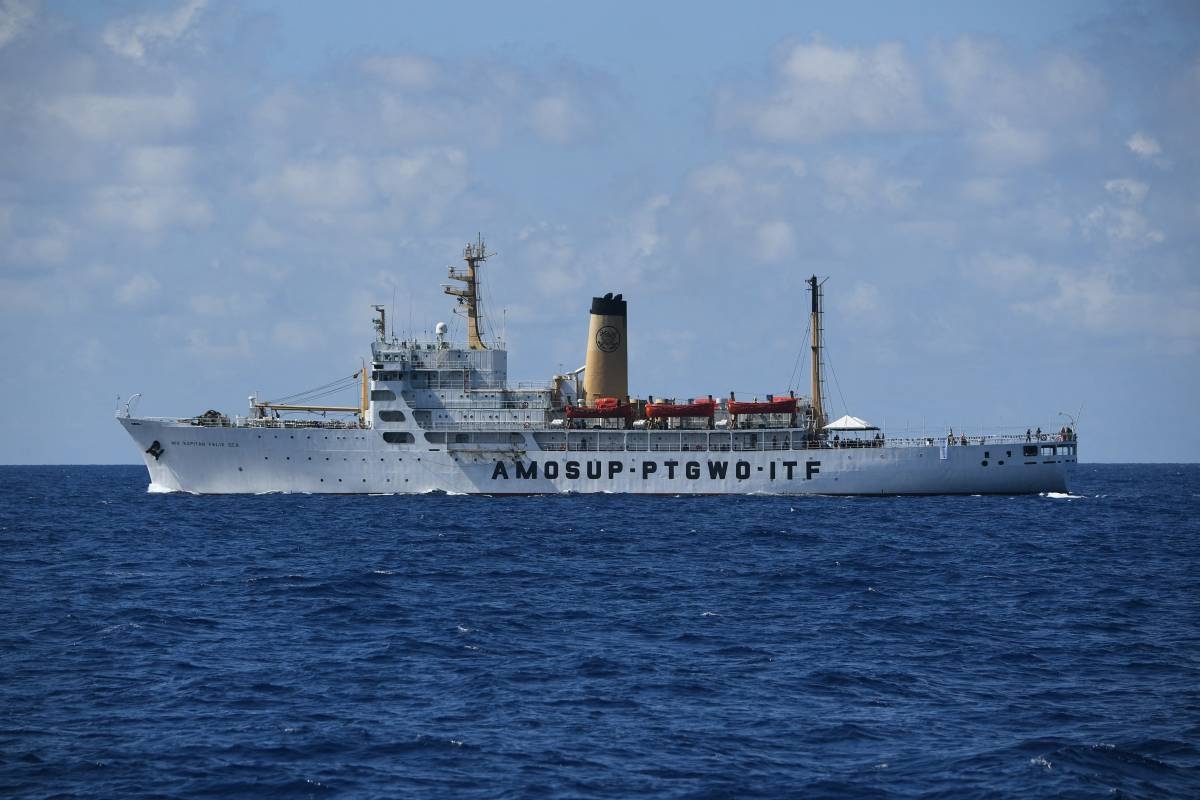A convoy of civilian boats, known as the “Christmas convoy,” had to abort its mission to deliver provisions to Filipino fishermen and troops in the disputed South China Sea due to constant shadowing by Chinese vessels. The convoy, led by dozens of volunteers on two boats carrying food, water, and other donations, departed from the Philippines’ western island of Palawan in the early hours of Sunday.
The convoy had already altered its course after a confrontation between Philippine and Chinese vessels earlier in the day. Erring on the side of caution, the Atin Ito group, in consultation with the Philippine Coast Guard, decided to return to El Nido in Palawan due to the continuous shadowing of four Chinese vessels, including two Navy ships, one coast guard, and one cargo ship.
Even during their return to El Nido, the convoy and the fishermen in 40 wooden outrigger boats were still being shadowed by two Chinese Navy and one Chinese Coast Guard vessels.
The Philippine Coast Guard provided escort to the convoy as it traveled through the hotly contested Spratly Islands in the South China Sea, an area China claims almost entirely. The Philippines maintains outposts on nine reefs and islands in the Spratlys. However, it is unclear how far the convoy had progressed before deciding to turn back.
The Atin Ito Coalition, also known as the “It is Ours” Coalition, had organized the convoy with the aim of highlighting the living and working conditions of Filipino fishermen and personnel, as well as defending the country’s maritime territorial rights.
The convoy had initially planned to pass Second Thomas Shoal, where a few Filipino troops are stationed on a grounded warship, before reaching the Philippine-held Nanshan Island where the donations would be left. However, a collision and confrontation between Philippine and Chinese vessels near the reef forced the convoy to reroute directly towards Nanshan.
Both countries’ coast guards blamed each other for the collision, adding to the escalating series of conflicts in the disputed sea. Manila also accused Chinese vessels of firing water cannon at its boats, further endangering the safety of the civilian supply mission.
The organizers had originally hoped to visit the troops stationed on the BRP Sierra Madre, a World War II-vintage warship grounded on Second Thomas Shoal in 1999. This rusty hulk has been a longstanding flashpoint for Manila and Beijing, with recent incidents involving Philippine and Chinese vessels straining diplomatic relations.







